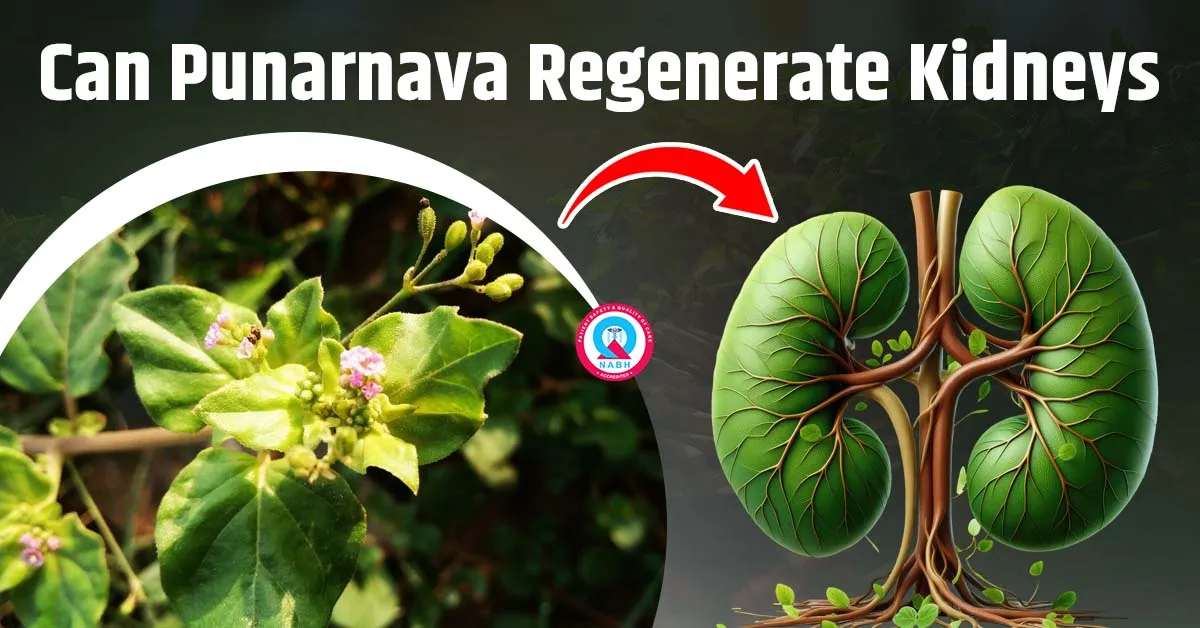
If you’ve ever looked into natural remedies for kidney health, chances are you’ve come across a little-known but powerful Ayurvedic herb called Punarnava. Known for its name that translates to "renew again," Punarnava (scientifically Boerhavia diffusa) has been used in traditional Indian medicine for centuries. But the question that often comes up is, “Can Punarnava regenerate the kidneys?”
Let’s break it down in a simple, friendly way.
First, a little information about the herb itself. Punarnava is a hardy little plant that grows wild in many areas around India. While it may not look like much, it has a significant number of medicinal values, which make it a linchpin of Ayurvedic healing, especially concerning kidney and liver health.
In Ayurvedic treatment for kidneys, Punarnava is referred to as a mutrala (diuretic) and rasayana (rejuvenator). This means that it helps the body naturally get rid of excess water and toxins while nourishing and strengthening the tissues themselves, including the kidneys. It has anti-inflammatory, anti-spasmodic, and antioxidant actions, which is an impressive package when you have kidney problems.
Now, here’s the thing. The word regenerate can be a bit misleading. If by regeneration we mean completely reversing advanced kidney damage or end-stage kidney disease, then no, Punarnava is not a magical cure. But if we’re talking about supporting the kidneys, slowing down damage, improving their function, and even helping in the early stages of kidney stress or mild dysfunction, then yes, Punarnava can be genuinely helpful.
Punarnava is often used by many Ayurvedic practitioners as a comprehensive treatment for chronic kidney conditions. It helps eliminate swelling due to water retention (which can be common with impaired kidney filtration), helps maintain urinary function, and provides gentle detoxification without stressing the kidneys.
Although most of the research to date has been preliminary, there are some scientific studies that have yielded some encouraging results. In animal studies, Punarnava extract has shown the ability to protect against damage to kidney cells and appeared to reduce serum creatinine and urea (i.e., both important markers of kidney function). Just like other effective medicinal substances, Punarnava is no magic bullet, but it can be a useful supporting medicinal tool when you take active steps to improve your kidney health.
Punarnava is commonly available as a powder (churna), juice (swaras), capsules, or in combination with other herbs in Ayurvedic formulations. Always consult a qualified Ayurvedic practitioner before starting any herbal treatment, especially if you already have a diagnosed kidney condition or are on medication.
It’s important to understand that Ayurveda doesn’t isolate a single herb as a fix-all. It works holistically, looking at your entire lifestyle, diet, stress levels, and body constitution. So, while Punarnava can be incredibly beneficial, its effects are enhanced when it’s combined with proper hydration, a kidney-friendly diet, stress management, and other supportive herbs.
Punarnava may not “regrow” kidneys in a literal sense, but it plays a supportive and restorative role in maintaining kidney health, especially in the early or moderate stages of kidney dysfunction. Think of it more as a natural helper that works quietly in the background, gently detoxifying, reducing inflammation, and strengthening your system from the inside out.
If you’re exploring Ayurvedic treatment for kidney care, Punarnava is an herb worth considering, with the right guidance, of course. If your kidney disease is at an advanced stage, then visit Karma Ayurveda, the best Ayurvedic hospital in India for renal issues.
Punarnava may support kidney repair by reducing inflammation and promoting cell regeneration naturally.
Yes, Punarnava is traditionally used in Ayurveda to manage CKD and support kidney function.
Punarnava helps flush toxins, reduce swelling, and improve overall kidney performance.
While not a cure, Punarnava may aid natural kidney recovery when used consistently with Ayurvedic care.
Second Floor, 77, Block C, Tarun Enclave, Pitampura, New Delhi, Delhi, 110034